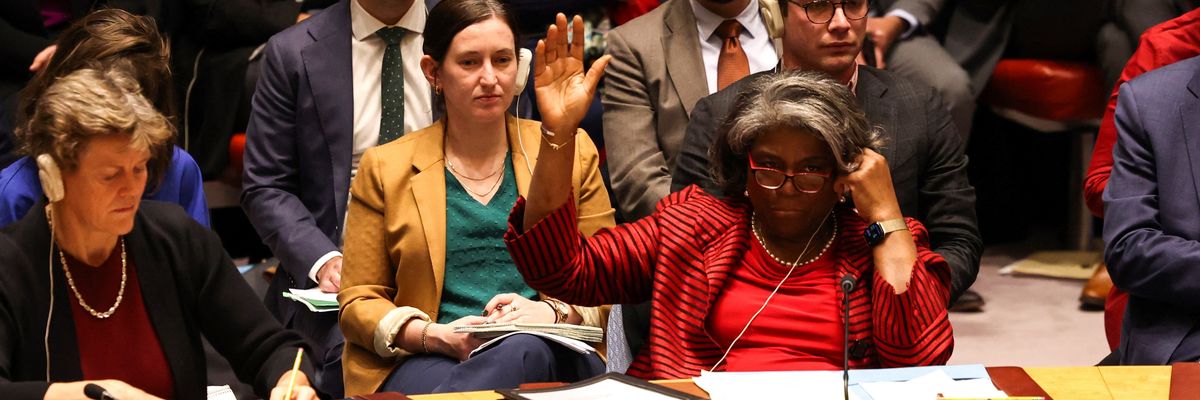After signaling that it would block a United Nations Security Council demand for an immediate cessation of hostilities in Gaza, the United States on Monday proposed an alternate resolution calling for a "temporary cease-fire" in the besieged Palestinian enclave "as soon as practical."
A draft of the U.S. resolution seen by media outlets including Reuters and Al Jazeera also calls for "lifting all barriers to the provision of humanitarian assistance at scale" in Gaza while warning against Israel's planned invasion of Rafah, the southern city packed with 1.5 million residents and refugees who fled there from other parts of the embattled strip on orders from Israeli authorities.
The U.S. move follows a threat to veto a draft resolution by Algeria urging an immediate cessation of hostilities in Gaza. The measure is based on last month's provisional International Court of Justice ruling ordering Israel to "take all measures within its power" to prevent acts of genocide.
Algeria's resolution is scheduled for a Tuesday vote. However, U.S. Ambassador to the U.N. Linda Thomas-Greenfield said last Friday that the measure "could put sensitive negotiations in jeopardy, derailing the exhaustive, ongoing diplomatic efforts to secure the release of hostages, and secure an extended pause that Palestinian civilians and aid workers so desperately need."
The U.S. proposal follows remarks by President Joe Biden, who said last week that he has called for a "temporary cease-fire" during private phone calls with Israeli Prime Minister Benjamin Netanyahu.
It is not clear when—or even if—the U.S. resolution will be up for a Security Council vote.
While some observers praised the U.S. for finally endorsing a cease-fire, others wondered just how much longer Israel's 136-day war that's killed or wounded over 100,000 people must rage before a pause is considered "practical."
Still, as Al Jazeera diplomatic editor James Bays noted Monday: "For the first time, the U.S. is proposing the word cease-fire. That is significant because Israel did not want the word cease-fire in any resolution, and now it is the U.S. which is proposing it."
"So something very clearly has changed in Washington in the last 24 hours," Bays added. "They've decided to be tougher on Israel."
